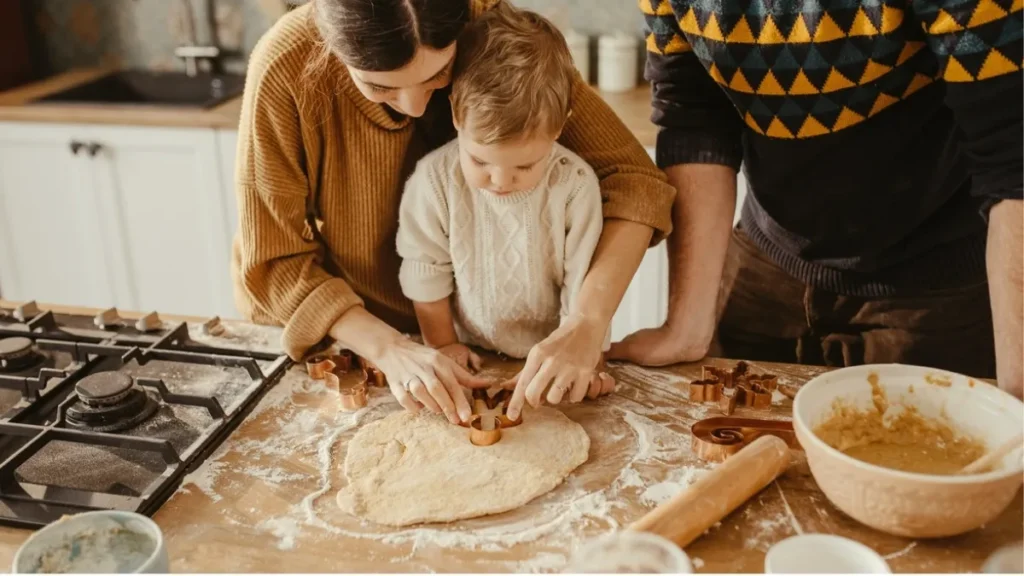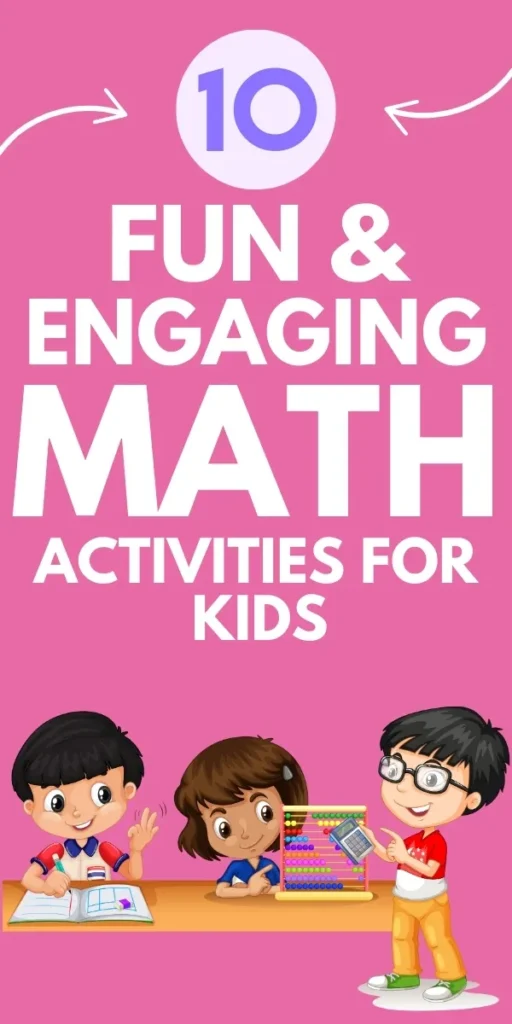Math isn’t just about numbers on a page. For young children, it’s about exploration, discovery, and making sense of the world around them.
Montessori math activities nurture this natural curiosity, transforming everyday experiences into engaging opportunities to develop foundational math skills.
Fun and Educational Math Activities for Kids
Math doesn’t have to be worksheets and drills! These 10 Montessori-inspired activities use everyday household items to turn playtime into a fun learning experience for your preschooler.
Activity 1: Sorting Fun

Age Group: 3-5 years old
Materials: Cereal (different shapes), bowls, spoon
How to Perform: Pour a mix of cereal with different shapes (Cheerios, squares, puffs) into a bowl. Give your child two or three empty bowls and a spoon. Show them how to sort the cereal pieces by shape, placing each type in its own bowl. This activity strengthens sorting skills and introduces basic shape recognition.
Area of Development: Sorting skills, Shape recognition
Activity 2: Counting Cheerios

Age Group: 3-5 years old
Materials: Cereal (Cheerios or similar), cup
How to Perform: Fill a cup with Cheerios. Sit down with your child and count the Cheerios together, one by one. You can sing a counting song or clap your hands with each count to make it more engaging. This activity strengthens basic counting skills.
Area of Development: Counting skills
Activity 3: Button Sorting

Age Group: 3-5 years old
Materials: Buttons (different colors and sizes), egg cartons or muffin tins
How to Perform: Collect buttons in various colors and sizes. Turn an egg carton or muffin tin upside down to create sorting compartments. Show your child how to sort the buttons by color or size, placing each button in its own compartment. This activity strengthens sorting skills and color recognition.
Area of Development: Sorting skills, Color recognition
Activity 4: Building with Blocks

Age Group: 3-5 years old
Materials: Building blocks
How to Perform: Building with blocks is a timeless activity that helps preschoolers develop many skills. Provide your child with a set of blocks and encourage them to build towers, houses, or anything their imagination desires. As they build, talk about concepts like big and small, tall and short, and counting the blocks they use. This activity strengthens spatial reasoning, fine motor skills, and basic math concepts.
Area of Development: Spatial reasoning, Fine motor skills, Basic math concepts
Activity 5: Sock Puppet Counting

Age Group: 3-5 years old
Materials: Socks, googly eyes (optional), markers
How to Perform: Decorate two or three socks with googly eyes and markers to create simple sock puppets. Put on a puppet show for your child, counting the puppets as you introduce them. You can also have them count the number of times the puppets perform an action, like jumping or waving. This activity strengthens basic counting skills in a fun and interactive way.
Area of Development: Basic counting skills
Activity 6: Number Line Hop
Age Group: 3-5 years old
Materials: Masking tape, marker, open space (floor or hallway)
How to Perform: Use masking tape to create a simple number line on the floor or hallway. Mark each section of tape with a number, starting from 1 and going as high as you like. Play hopping games with your child, instructing them to hop on specific numbers or counting the number of hops they take to reach a certain point. This activity strengthens number recognition and basic addition skills.
Area of Development: Number recognition, Basic addition skills
Activity 7: Playful Baking

Age Group: 3-5 years old
Materials: Ingredients for baking (cookies, muffins, etc.), measuring cups/spoons
How to Perform: Get your preschooler involved in the kitchen! When baking cookies or muffins, let them help you measure the ingredients using measuring cups and spoons. Talk about the different sizes of cups and spoons and how many spoonfuls it takes to fill a cup. This activity strengthens basic measuring skills and introduces fractions (half cup, quarter cup).
Area of Development: Measuring skills, Introduction to fractions
Activity 8: Beanbag Toss

Age Group: 3-5 years old
Materials: Beanbags (homemade or store-bought), bucket, markers
How to Perform: Decorate a bucket with numbers written on the sides. You can use beanbags or socks filled with dried beans. Take turns tossing the beanbags into the bucket, counting how many land in each numbered section. This activity strengthens basic counting skills and introduces the concept of addition (counting the total number of beanbags in the bucket).
Area of Development: Basic counting skills, Introduction to addition
Activity 9: Nature Scavenger Hunt

Age Group: 3-5 years old
Materials: Basket, paper (optional)
How to Perform: Head outdoors for a nature scavenger hunt! Give your child a list of things to find, such as 5 leaves, 3 pebbles, or 2 flowers. They can collect their treasures in a basket and count them when they return home. This activity strengthens counting skills and connects math with the natural world.
Area of Development: Counting skills, Math and nature connection
Activity 10: Coin Sorting Race
Age Group: 3-5 years old
Materials: Coins (pennies, nickels, etc.), two bowls or containers
How to Perform: Gather a small collection of coins (pennies, nickels, etc.) Set a timer and challenge your child to sort the coins by type (pennies in one bowl, nickels in another) as quickly as they can. This activity strengthens sorting skills and introduces basic speed and recognition.
Area of Development: Sorting skills, Speed and recognition

Conclusion: Cultivating a Lifelong Love of Learning
By incorporating these activities, you’ll be nurturing your child’s natural mathematical curiosity. Montessori math goes beyond rote memorization, fostering a love for exploration, problem-solving, and critical thinking skills that will benefit them throughout their lives.